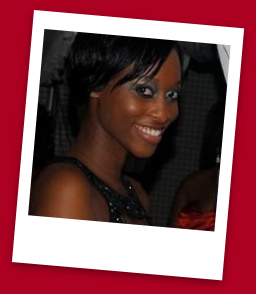“Bob Marley had to struggle for recognition in his own homeland”
January 30 Caribbean cultural industries have struggled for pride of place at home despite their popularity abroad, according to Leigh-Ann Worrell, 24, a Commonwealth Correspondent from Barbados currently studying in Beijing, China.
Caribbean cultural industries have struggled for pride of place at home despite their popularity abroad, according to Leigh-Ann Worrell, 24, a Commonwealth Correspondent from Barbados currently studying in Beijing, China.
Barbadian, Belgian, Brazilian and British students sat on a couch in a dimly lit bar in Beijing, China.
Other than the fact that they are all foreign scholarship students in China and attended the same university, there seemed to be little point of reference or similarity on which they can engage in real conversation – save for the odd mention of a favourite artist or movie.
Loosely bonded by a small group of mutual acquaintances, they found themselves in the scenic Hohai district eagerly looking for a mid-week break from papers and course reading materials.
Within a few minutes, Bob Marley classic ‘Redemption Song’ booms through the speaker system at the bar and these four students connect through the lyrics and melody of the late, great musical icon.
As the night wore on, between the jokes and sing-alongs, guilty thoughts of morning classes forced the reggae party to come to an abrupt end, and these students and their friends made the short trip back to their university.
This small, somewhat inconsequential experience can translate into a bigger meaning, especially for those of us from the Caribbean: the power of music and culture to wrap around nations and show the world that with which we are capable.
It is almost ironic that people in the Caribbean are constantly bombarded with sounds of music that do not reflect who we are, while those actively and intricately involved in the music industry fight hard for quota systems on local radio stations in an effort to allow home-grown talent to prosper and bloom.
It is no secret that Bob Marley had to struggle for recognition in his own homeland of Jamaica while audiences in the US and the UK marvelled at the talent of the bold Rastafarian.
Artistes following in his footsteps may have it easier, but the battle for talent recognition (and compensation) remains. Recently, veteran artiste and producer Freddie McGregor refused to play at the Jamaica Jazz and Blues festival, citing that he did not want to play what he called the “underdog role.”
On my island’s sunny shores, artistes were justifiably upset that a Jamaican singer was brought in to headline a show being held on the holiday to commemorate the birth of our ‘Father of Independence’ Errol Barrow on January 21, asserting that local vocals were more than capable of maintaining a high standard concert.
They are yet to be given a space that is solely and uniquely theirs after years of being promised one, and adequate governmental support to give them a shot at being discovered by a wider audience.
As these internal fights rage on, people from across the globe find value and worth in beats and lyrics fashioned from our part of the world: cue Hal Linton, Rihanna, Sean Paul, Shaggy… the list really does go on.
It also drives home the point that more emphasis needs to be placed on Caribbean cultural industries which have constantly struggled for pride of place. It is time our governments realise what people in other parts of the globe have for decades: there is high value to our “Positive Vibrations”.
…………………………………………………………………………………………………………………
About me:
“I am a reporter for www.barbadostoday.bb. I am passionate about women’s rights issues, theatre arts and cats. I like hanging out with my friends, live for the beach and (sorta) enjoy cooking. I eventually to work in the gender and development field in any part of the world.”
…………………………………………………………………………………………………………………
Opinions expressed in this article are those of the author and do not necessarily represent the views of the Commonwealth Youth Programme. Articles are published in a spirit of dialogue, respect and understanding. If you disagree, why not submit a response?
To learn more about becoming a Commonwealth Correspondent please visit: http://www.yourcommonwealth.org/submit-articles/commonwealthcorrespondents/
…………………………………………………………………………………………………………………



